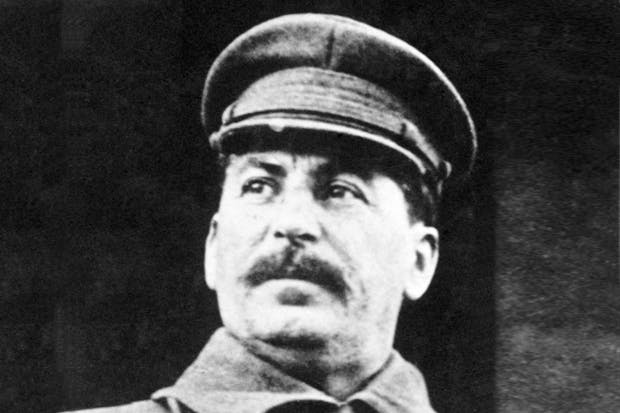In her defence of her wretched Human Rights Commission, Gillian Triggs boasted that the Commission has been processing some 22,000 grievances a year. Most of them are settled, she says. But the real point of her boast is that we are being encouraged to become a nation of whingers – with special government agencies ever ready to welcome our grievances, imagined or real. Once we used to settle complaints and get on with it. Now we appeal to the State and queue up in thousands. What a miserable outlook for the country.
Malcolm Turnbull was in good form the other day in Canberra when announcing the Prime Minister’s Literary Awards in the splendid foyer of the National Library of Australia. Before opening the envelopes containing the names of the winners, (as selected by the judges) he gave two of his own recommendations of books that he believed should make fine (Christmas?) gifts, whether or not their names were in the official envelopes and approved by the judges. As it happened, they were.
One of his non-fiction recommendations was Sheila Fitzpatrick’s On Stalin’s Team. The Years of Living Dangerously in Soviet Politics – a masterly if rare Australian contribution to Sovietology. In her Introduction she refers to Stalin’s fear that one day a spy might worm his way into his milieu and observe him up close. ‘I am’, writes Fitzpatrick, ‘that spy.’ She challenges the old Trotskyist idea that Stalin was really a second-rate dictator who dominated a third-rate gang of collaborators. On the contrary, in her view, no matter how brutally Stalin treated his henchmen, sometimes murdering them, he basically depended on their ruthless competence as much as they depended on him. That is why on Stalin’s death in March 1953 the Stalinist system more or less endured. This is the big surprise of Fitzpatrick’s research. (In the judges’ official recommendations inside the envelopes, On Stalin’s Team tied with Karen Lamb’s biography Thea Astley: Inventing Her Own Weather.) The PM’s other (Christmas?) present, which as it happened also won an official Prime Minister’s award, was Geoffrey Blainey’s The Story of Australia’s People. The Rise and Fall of Ancient Australia. It is the first instalment of Blainey’s proposed two-volume history of Australia’s people over 50,000 years. It begins with the arrival of the first Australians in what was then a liveable continent which still united Australia, New Guinea and Tasmania. Over countless centuries their comparatively prosperous and nomadic way of life became isolated from the civilizations that came to dominate Asia and Europe. Eventually a new materialist, expansionist and restless stream of immigrants began to arrive from Europe at the end of the 18th century. The inevitable confrontation took place in Sydney in 1788. The second volume of the master work will begin with the gold rush in 1851.
Turnbull’s selection was also a joint winner of the Prime Minister’s Australian History Award, as approved by the judges – tie-ing with the celebratory Let My People Go: The Untold Story of Australia and the Soviet Jews 1959-1969 by Sam Lipski and Suzanne D. Rutland. Writers of poetry (Sarah Holland-Batt), fiction (Lisa Gorton; Charlotte Young), adult fiction (Meg McKinlay), and children’s fiction (Sally Morgan) also won Prime Ministerial awards. Blainey ended his speech of acknowledgment by calling with contagious feeling: ‘Áustralia is a Success Story! Long live Australia!’ But literary prize-winners do not need the approval of a Prime Minister (or Premier.) In fact one of the most impressive sets of annual literary awards is sponsored – and has just now been announced – by Waverley Municipal Council in NSW. There the judges – chaired by the poet and critic Jamie Grant – select one book only (with a prize of $20,000) as the best of the year. This year they awarded the prize to Rachel Landers for her Who Bombed the Hilton? When early in 1978 a bomb exploded outside the Hilton Hotel in Sydney, killing two garbage collectors and a policeman, three men were convicted of the crime. But they were later released, pardoned and compensated. The crime remains officially unsolved. Despite the book’s massive archive (‘larger than a walk-in wardrobe, smaller than a two-bedroom house’) its uncluttered style, Jamie Grant says, makes it enjoyable as a thriller.
Waverley also recently introduced a new Anzac Day prize of $3,000 – sponsored by the three RSL’s of Bondi Junction, Rose Bay, and North Bondi – for the best book on any aspect of war. (As Jamie Grant put it: ‘First-hand experience of war is a form of research that can hardly be surpassed.’) The winner this year is Garth Callender’s After the Blast. An Australian Officer in Iraq and Afghanistan.
Talking of Christmas presents, don’t overlook Giles Auty’s new Culture at Crisis Point – a selection of his art (and cultural) criticism of the past 20 or so years. When he first moved from England to Australia in 1995 a number of Australia’s most advanced critics refused to talk to him. (‘At times I felt tempted to wonder whether my plane from London had perhaps landed in North Korea by mistake.’) A few stuck by him. The current selection includes his assessment of the vast London exhibition of 2013 – ‘AUSTRALIA’ – perhaps, Auty declared, the worst major London exhibition of the year. (‘Australia’s most sought-after living artist, Tim Storrier, does not make this show at all’.) But it also includes Auty’s reflections on life, death and immortality…
Got something to add? Join the discussion and comment below.
Get 10 issues for just $10
Subscribe to The Spectator Australia today for the next 10 magazine issues, plus full online access, for just $10.













Comments
Don't miss out
Join the conversation with other Spectator Australia readers. Subscribe to leave a comment.
SUBSCRIBEAlready a subscriber? Log in